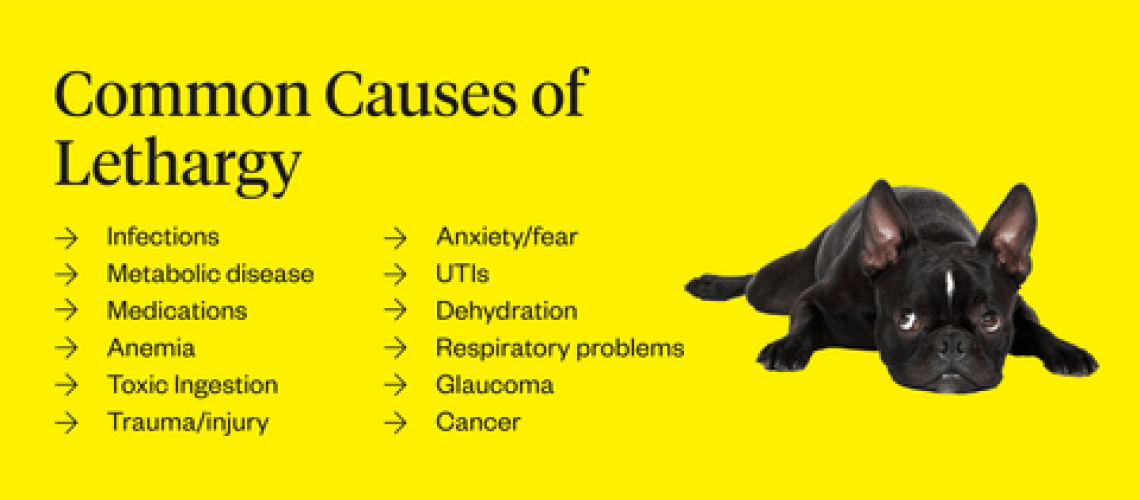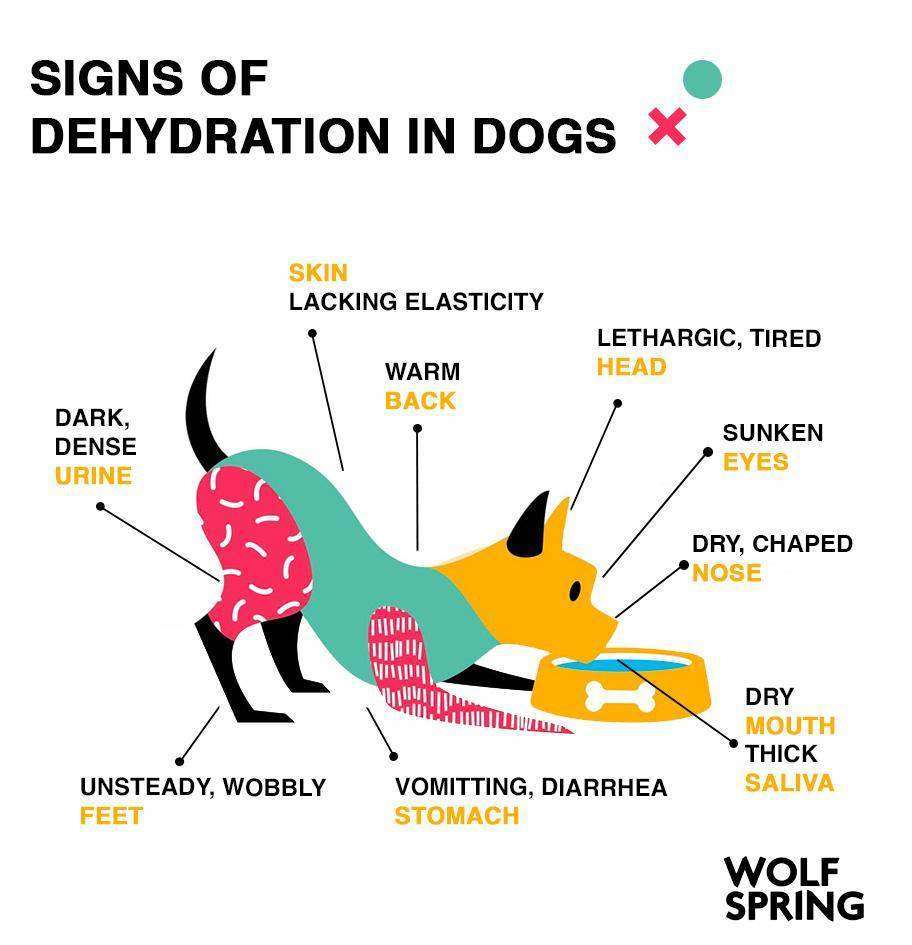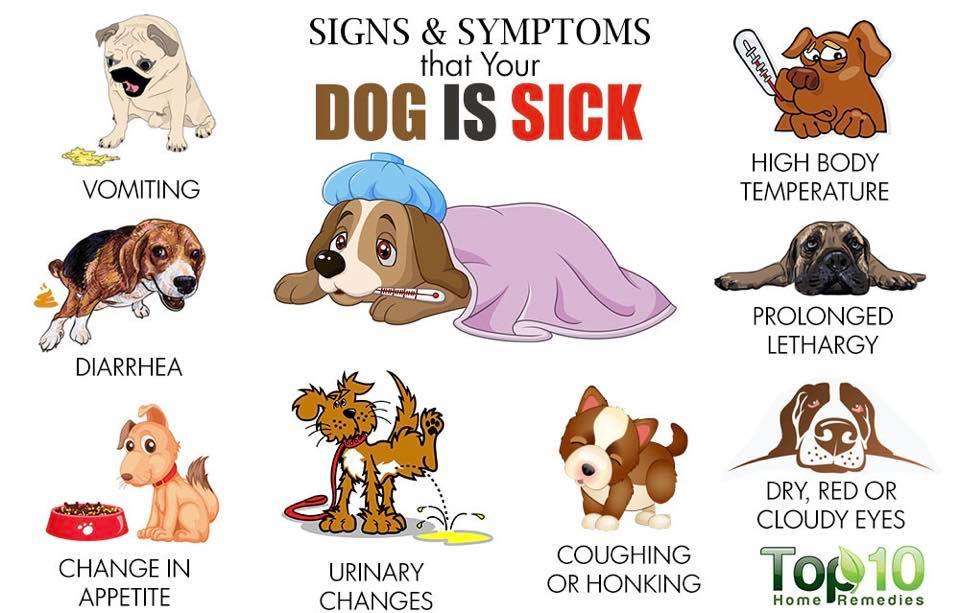Key Takeaways:
- Lethargy in dogs can be a symptom of various underlying health issues.
- Common causes of dog lethargy include infections, pain, dehydration, and certain medications.
- If your dog is lethargic, it is important to monitor their behavior and look for other accompanying symptoms.
- Contacting a veterinarian is crucial to determine the cause of your dog's lethargy and provide appropriate treatment.
- Preventing dog lethargy involves regular exercise, a balanced diet, proper hydration, and regular veterinary check-ups.
Are you worried about your furry friend's recent lack of energy? Wondering why your dog is feeling so lethargic? Well, let me tell you, understanding the reasons behind your dog's sluggish behavior can be absolutely crucial. Not only can it help you provide the best care for your beloved pet, but it can also ensure their overall well-being and happiness. So, if you're ready to uncover the secrets behind your dog's lethargy, keep reading! In this article, we will explore the various factors that could contribute to your dog's lack of energy and discover simple yet effective ways to boost their vitality. Get ready to become a pro at identifying and addressing your dog's lethargic moments!
What does it mean when a dog is tired all the time?
When a dog is tired all the time, it could be a sign that something is not right. Just like humans, dogs can feel tired if they are not getting enough sleep or rest. However, if your dog seems excessively tired and sleepy even after getting enough rest, it might be an indication of an underlying health issue.
There are several reasons why a dog may be tired all the time. One common reason is age. As dogs get older, they tend to have less energy and may sleep more. Another possible cause could be anemia, which is a condition where there is a decrease in red blood cells that carry oxygen throughout the body. This can make your dog feel weak and fatigued.
If you notice that your dog is constantly tired and lacking energy, it's important to monitor their behavior and look out for any other symptoms that may accompany their fatigue. It's always best to consult with a veterinarian who can properly diagnose the cause of your dog's tiredness and provide appropriate treatment.
How to know if your dog is tired or sick?
Determining whether your dog is simply tired or actually sick can sometimes be challenging. Dogs cannot communicate their feelings directly, so we have to rely on their behavior and physical signs to assess their well-being.
Here are some signs that can help you differentiate between normal tiredness and potential sickness in your dog:
- Lack of appetite: If your dog suddenly loses interest in food or eats significantly less than usual, it could indicate illness rather than just being tired.
- Lethargy: While it's normal for dogs to have lazy days occasionally, persistent lethargy where they lack interest in activities and are reluctant to move could be a sign of illness.
- Changes in behavior: If your dog becomes unusually irritable, anxious, or withdrawn, it may indicate an underlying health issue.
If you notice any of these signs along with your dog's tiredness, it's important to consult with a veterinarian. They will be able to perform a thorough examination and run any necessary tests to determine the cause of your dog's symptoms.
Why do dogs become tired and lazy?
Dogs can become tired and lazy due to various reasons. Just like humans, they can experience fatigue from physical exertion or lack of sleep. However, if your dog is consistently tired and lazy without any apparent reason, there might be an underlying cause.
Some common factors that can contribute to a dog feeling tired and lazy include:
- Poor nutrition: A diet lacking essential nutrients can lead to low energy levels in dogs.
- Lack of exercise: Dogs need regular exercise to stay physically fit and mentally stimulated. Without enough physical activity, they may become lethargic.
- Underlying health issues: Certain medical conditions such as hypothyroidism or heart problems can cause dogs to feel fatigued.
If you notice that your dog is consistently tired and lazy, it's important to evaluate their diet, exercise routine, and overall health. Making sure they are receiving proper nutrition, engaging in regular physical activity, and addressing any potential health concerns can help improve their energy levels and overall well-being.
Can health problems make a dog feel tired?
Yes, health problems can certainly make a dog feel tired. Just like humans, dogs can experience fatigue as a symptom of an underlying health issue. There are several medical conditions that can contribute to a dog feeling tired and lacking energy.
Some common health problems that can cause fatigue in dogs include:
- Anemia: A decrease in red blood cells can lead to reduced oxygen supply to the body, resulting in fatigue.
- Infections: Bacterial or viral infections can weaken a dog's immune system and make them feel tired.
- Heart disease: Dogs with heart problems may experience fatigue due to decreased blood flow and oxygenation of tissues.
If you suspect that your dog's tiredness is due to an underlying health problem, it's important to consult with a veterinarian. They will be able to evaluate your dog's symptoms, perform necessary tests, and provide appropriate treatment to address the underlying cause of their fatigue.
Ways to help your tired dog feel better at home
If your dog is feeling tired, there are several things you can do at home to help them feel better. Here are some ways to provide comfort and support for your tired pup:
- Ensure they have a comfortable sleeping area: Make sure your dog has a cozy bed or designated spot where they can rest undisturbed. Provide soft bedding and ensure the area is quiet and peaceful.
- Maintain a consistent routine: Dogs thrive on routine, so try to establish regular feeding times, exercise sessions, and sleep schedules. This helps them feel secure and promotes better rest.
- Provide a balanced diet: Ensure your dog is getting proper nutrition by feeding them high-quality dog food that meets their specific dietary needs. Consult with a veterinarian for recommendations tailored to your dog's age, breed, and any underlying health conditions.
- Promote mental stimulation: Engage your dog in interactive play, puzzle toys, or training sessions to keep their mind active and prevent boredom. Mental stimulation can help alleviate fatigue and increase overall well-being.
- Monitor their water intake: Make sure your dog has access to fresh water at all times. Dehydration can contribute to tiredness, so it's important for them to stay hydrated.
If your dog's tiredness persists or is accompanied by other concerning symptoms, it's best to consult with a veterinarian for a thorough evaluation and appropriate medical advice.
When should you worry about your dog's tiredness and ask a vet for help?
While occasional tiredness in dogs is normal, there are certain signs that indicate you should seek veterinary assistance for your furry friend. Here are some situations where you should be concerned about your dog's tiredness:
- Sudden and severe fatigue: If your dog goes from being energetic and active to extremely lethargic and weak within a short period, it could be a sign of a serious underlying condition.
- Loss of appetite: If your dog refuses to eat or shows a significant decrease in appetite along with tiredness, it may indicate an underlying health problem that requires immediate attention.
- Difficulty breathing: Labored breathing or excessive panting while at rest can be indicative of heart or respiratory issues that need prompt veterinary care.
- Persistent symptoms: If your dog's tiredness persists for more than a few days without improvement or is accompanied by other concerning symptoms such as vomiting, diarrhea, or unusual behavior changes, it's important to consult with a veterinarian promptly.
It's always better to err on the side of caution when it comes to the health of our beloved pets. If you have any concerns about your dog's tiredness, contacting a veterinarian can help identify any potential underlying issues and provide appropriate treatment to ensure your dog's well-being.
In conclusion, there can be various reasons why a dog may appear lethargic. It is important to observe their behavior, consult a veterinarian if necessary, and provide proper care to ensure their health and well-being.
When should I be concerned about my dog being lethargic?
If your dog's condition does not improve within 24 hours, it is important to take them to the veterinarian for a thorough physical examination and bloodwork. Similarly, if your dog continues to show signs of lethargy along with other symptoms such as vomiting, it is crucial to determine the underlying cause as it indicates a problem. According to Dr. Attas, this should be done to ensure the well-being of your dog.
Why is my dog suddenly lethargic but no other symptoms?
If your dog suddenly becomes very tired and unenergetic, it could be a sign of a serious infection, and you should seek immediate veterinary care. If your dog only seems lethargic and doesn't have any other symptoms of illness, your vet may suggest monitoring them for a few hours. However, if there is no improvement after 24 hours, it is necessary to bring your dog in for a physical examination and blood tests.
Is My dog Sick or just tired?
If you notice that your dog is showing signs of exhaustion or lethargy that are out of the ordinary, it may indicate an underlying issue. If your dog is slower to respond, less playful, or generally more inactive than usual, it is recommended to schedule a comprehensive examination with a veterinarian.
What are signs of parvo?
Symptoms of parvovirus may include tiredness, decreased appetite, stomach discomfort and swelling, fever or low body temperature, throwing up, and severe, often bloody, diarrhea. Continuous vomiting and diarrhea can lead to quick dehydration, and harm to the intestines and immune system can result in septic shock.
How do you fix a lethargic dog?
To help dogs feel better, many of the conditions that cause lethargy will require supportive care. This can include fluid therapy and medications to alleviate symptoms. The veterinarian may also prescribe medications that specifically target a certain disorder, such as antibiotic treatment for bacterial infections.
What are the first signs of heartworms in dogs?
Lethargy, lack of activity, and increased coughing are among the initial symptoms of heartworm disease in dogs. If your dog seems tired or uninterested in physical activities that they usually enjoy, it is important to consult a veterinarian for an examination.

















